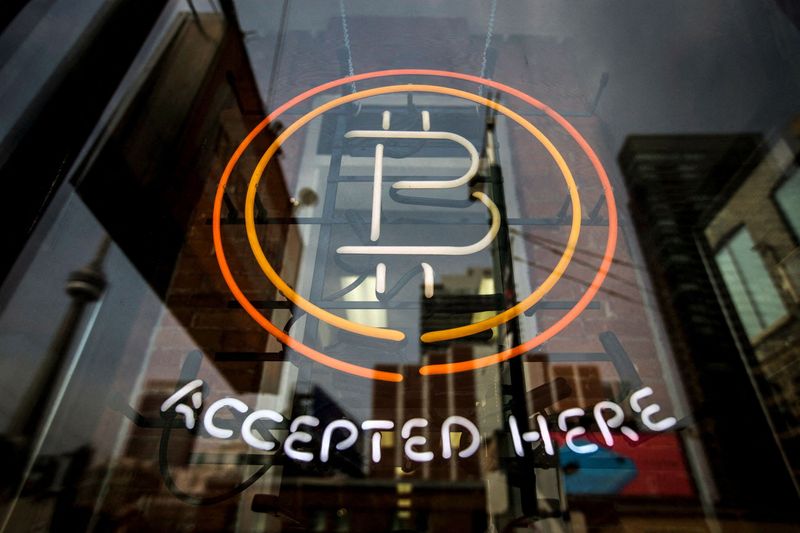German construction sector still in recession, civil engineering only bright spot
Investing.com -- Last week, Bitcoin declined by 0.9%, finishing just above the $67,800 mark. According to H.C. Wainwright, this performance was in line with major equity indices, with the S&P 500 and Nasdaq down 0.5% and 1.4%, respectively.
Mining stocks also lost 3.7%, which reversed some of the gains from the prior week when public miners rallied 10.8%.
The Bitcoin network hash rate fell sharply, dropping 13.8% week-over-week to 567 EH/s after hitting an all-time high of 657 EH/s (7-day average) the previous week. This marks the largest week-over-week decline in the network hash rate since the summer of 2021, when the Chinese government issued a ban on crypto mining.
Less efficient miners with higher power costs continue to capitulate following the halving in late April, and a period of consolidation is expected over the coming months. Heightened volatility in the network hash rate is also expected through September as miner curtailment activity picks up during the hot summer months in North America, where 38% of the network hash rate is currently based.
H.C. Wainwright details that network difficulty remained at 84.4T after the latest 1.5% positive adjustment on May 23, 2024, while higher transaction fees led to a 3.1% week-over-week increase in hash prices to $0.055/TH/day.
Elsewhere, flows into U.S. spot BTC ETFs have regained momentum in recent weeks following a positive shift in the U.S. government's stance on crypto regulation and adoption. Former president and current presidential candidate Donald Trump made supportive comments for crypto at the Libertarian National Convention in Washington D.C. on May 25, stating, "I will support the right to self-custody to the nation's 50M crypto holders... I will keep Elizabeth Warren and her goons away from your bitcoin... I will ensure that the future of crypto and the future of Bitcoin will be made in the USA, not overseas."
Crypto is shaping up to be a major bipartisan issue heading into the presidential election in November. In May, there was bipartisan support and passage from both the House and Senate to overturn the Securities and Exchange Commission's Staff Accounting Bulletin (SAB) 121, which would have opened the door for traditional financial institutions to custody digital assets for their clients and made it easier for these institutions to work with crypto companies.
Nevertheless, this was subsequently vetoed by President Biden last Friday. Additionally, the House passed the Financial Innovation and Technology for the 21st Century Act (FIT21) on May 22, providing a comprehensive regulatory framework for crypto in the U.S. The SEC also unexpectedly approved eight 19b-4 applications for ETH ETFs, including filings from Blackrock and Fidelity on May 23.
This improved regulatory backdrop for crypto resulted in 15 consecutive trading days of net inflows into spot BTC ETFs. Over this period, through June 3, the funds collectively garnered approximately $2.3 billion in total net inflows.
Moreover, BlackRock’s iShares Bitcoin Trust (NASDAQ:IBIT) became the fastest ETF in history to reach $20 billion in assets under management (AUM) last week, achieving this milestone in less than five months post-launch. IBIT is now the largest bitcoin fund in the world, overtaking the Grayscale Bitcoin Trust (NYSE:GBTC), which had $19.7 billion in AUM as of June 3, 2024.
